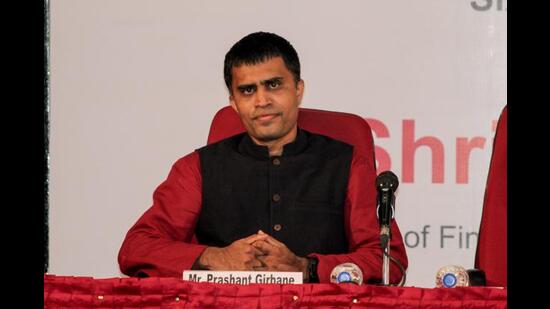MEDIA
In hope of strong support: Pune’s industry captains lay out their budget expectations
www.hindustantimes.com | January 31, 2022
Industry in Pune has various expectations from the budget to be presented on Tuesday by finance minister Nirmala Sitharaman.
After two consecutive years of the Covid-19 pandemic have adversely affected the economy, industry in Pune has various expectations from the budget to be presented on Tuesday by finance minister Nirmala Sitharaman.
Prashant Girbane, director-general, MCCIA
 Prashant Girbane (HT)
Prashant Girbane (HT)“The budget should support real growth of 8.5 to 9% or more. We are not yet completely out of the pandemic so there is still need to provide fiscal space, however fiscal deficit should reduce from about 6.8% of the GDP this year to about 5.8% of the GDP next year. The allocation for capital expenditure, that creates jobs and boosts consumption, should increase from Rs5.5 trillion to about Rs6.5 to Rs7 trillion. There is need to emphasise on some of the announcements made in previous budgets such as the national infrastructure pipeline, national asset monetisation plan, and labour reforms. The budget should also hint at new policy interventions, including clarity on crypto currencies. The FM should highlight the need for the GST council to include alcohol and petroleum products in GST. There is need for special emphasis on MSMEs that are not yet completely out of the woods. Continuation of the ECLGS scheme, though with lower allocation and boosting support through other schemes like technology up-gradation and quality assurance will help. Reduction in custom duty on metals that are used as raw materials will help MSMEs.”
Nishant Agarwal, founder, Proctur
 Nishant Agarwal (HT)
Nishant Agarwal (HT)“The ed-tech sector has adopted new technology and approaches. However online classes were hampered by inadequate internet connections, digital devices, or computer systems. The ed-tech ecosystem anticipates that the government will make government services available to both applicants and ed-tech companies. The budget is projected to place a greater emphasis on improving internet connectivity infrastructure across the country. Also, one of the most critical areas which required improvement is the GST treatment of print vs digital educational products. Online educational content has the potential to improve educational access and quality. From this year’s budget, there is a hope that the GST will be cut, allowing more individuals to invest in digital education.”
 Vishal Gokhale (HT)
Vishal Gokhale (HT)“It has been a longstanding demand of the real estate sector either to reduce or remove GST applicable for under construction flats. We hope that the FM and GST council considers this in the coming budget. In the past few years, the demand for bigger homes has increased thus an increase in home loan tax benefit will be beneficial for both the home buyer as well as the real estate sector since it is expected to boost the sale of properties.”
Anil Pharande, president, Credai-Pune Metro
 Anil Pharande (HT)
Anil Pharande (HT)“Credai advocates cheaper home loans, tax benefits for investments in housing, and longer loan repayment cycles to boost housing demand and enable more people to buy their dream homes which will contribute to achieving the government’s policy of ‘housing for all by 2022’. We recommend amendments in Section 80IBA of affordable housing, which along with home buyers will also benefit the construction sector. We are also expecting additional support from the government to control the rising input costs besides streamlining faster approvals for projects, introducing credit input on GST, and increasing availability for funding, streamlining and faster approvals for projects which.
Bharat B Phatak, personal finance expert
 Bharat Phatak (Pratham Gokhale/HT)
Bharat Phatak (Pratham Gokhale/HT)“The government wants higher tax collections to continue. Looking at the number of income tax returns filed and GST registrations, it seems that collections will be higher due to better compliance and data transparency. At this time, the government should not raise tax rates. Stock markets are worried about equity capital gains’ tax increase.”
 Dishan Kamdar (HT)
Dishan Kamdar (HT)“We hope that the budgetary allocation to the overall education sector will see an increase this year, as the last two years have severely impacted both institutions and students, with a shift to the online mode. A fund allocation for advancement in the technology infrastructure to help enable institutes to invest in the latest technology tools, software, and high-speed connectivity will surely deliver a seamless, high-quality learning experience to their students. The government could also develop an education loan scheme for ease in accessibility, disbursement and repayment terms which will support students from the lesser privileged strata and the deeper pockets of the country to benefit from.”

